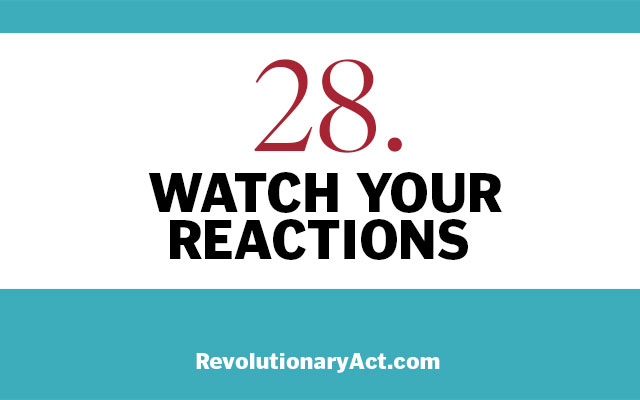Expert Source: Elika Kormeili, MA, MFT, clinical psychologist, cognitive behavioral therapist, and founder of the Center for Healthy and Happy Living in Los Angeles.
Some allergies are temporary annoyances, some are daily discomforts, and some are genuine menaces. Celiac disease, for instance, can take a severe toll on your overall health unless it’s managed by avoiding certain foods completely. Other allergies can instantly threaten your life.
Doctors use the term “anaphylaxis” for the worst allergic reactions. These can cause any number of frightening symptoms: a blocked airway, hives, vomiting, a sudden drop in blood pressure, weak pulse, dizziness. Certain drugs can trigger anaphylaxis in someone who is allergic, as can bee stings or foods like peanuts, shellfish, soy, eggs, or dairy.
Such allergies can make ordinary experiences — think dining out or relaxing on your deck during summertime — extremely anxiety-producing, says psychologist Elika Kormeili, MA, MFT. But with some planning, support, and self-care, you can reduce the stress and live your life more fully.
Challenges to Overcome
- Hypervigilance. Your allergy is likely to stay in the forefront of your mind, even in totally safe situations — “especially if you’ve actually had an episode of anaphylaxis,” Kormeili says. “You know how bad it can be, and you are always on guard to avoid having that traumatic experience again.”
- Feeling deprived. If your allergy is to food, always needing to monitor your meal choices while those around you help themselves freely to whatever they want “can make you feel very lonely and deprived,” she says. “You can get very focused on what you can’t have rather than what you can.”
- Fear of going out. In some cases, the anxiety about the potential dangers of bees, restaurant food, or other allergic threats may keep you from going out at all, Kormeili notes, and you can become socially isolated.
- Chronic stress. Constantly worrying about an allergic trigger can actually aggravate your allergic reactions. A chronically activated sympathetic nervous system takes a toll on your immune system and makes it harder for your body to fight off allergens. “You also become more susceptible to other illnesses,” she says.
- Other people’s misunderstanding. Many people aren’t aware of how serious an anaphylactic allergy or celiac disease can be, Kormeili notes. They may confuse them with minor seasonal allergies and assume that it’s “all in your head.” They may be offended if you don’t eat a dish they’ve made or a meal that’s traditional in their family or community. Some people have trouble understanding that your food choices are not part of a fad diet or a preference, like vegetarianism.
- Worry about being a bother. Staying safe may mean that you have to take longer when ordering in a restaurant, by asking questions and making requests. Or you may have to “interrogate” a party host about the foods offered. It can make for self-consciousness, especially if you encounter misunderstanding.
Strategies for Success
- Have a plan. The single most helpful thing you can do to reduce your allergy-related anxiety, Kormeili says, is to know what to do if your allergy is triggered. “It can be as simple as agreeing that a friend will call 911 while you get your EpiPen.”
- Have a wingman. For those with food allergies, Kormeili suggests recruiting a friend as a wingman in social-eating situations. Your buddy agrees to eat exactly what you eat, whether or not he or she shares your allergy, helping you avoid dangerous choices and reducing your sense of isolation. You feel companionship — a member of your own “group” — which can make you less self-conscious.
- Practice your lines. Prepare and rehearse a stock phrase for asking about the content of dishes, or responding when you’re offered something you can’t eat. Be honest, straightforward, and impactful, says Kormeili: “‘I’m sorry, but I have an allergy to peanuts that will put me in the hospital in about a half-hour. I need to be certain this dish doesn’t contain them.’”
- Be realistic. “Some people are just not going to understand the seriousness of your allergy no matter what you say, and you certainly can’t educate everybody about it,” she admits. “You can’t control how they’re going to react, but you can control your own reaction; do your best to remain calm and cordial.”
- Prepare ahead of time. When you have social commitments you can’t avoid, do some advance research about your destination. Read menus online or call the dinner-party hosts ahead of time to let them know about your food allergies and to ask what they’ll be serving. Offer to bring a dish you can eat. Headed to a park where bees might be an issue? Locate the nearest clinic. Do whatever you need to do to feel relaxed and safe.
- Get counseling. If your allergy anxieties are keeping you at home for fear of encountering allergic triggers, or they’re diminishing your quality of life in other ways, professional counseling may be your best way forward.
- Find (or create) a support group. Severe-allergy sufferers have come together in some communities to form support groups, though most of these serve parents of children with allergies, Kormeili says. Check out www.foodallergyawareness.org to locate in-person and online groups that focus specifically on allergy sufferers. The website also offers resources to help you create your own support group. It will remind you that you’re not alone.
This article originally appeared as “Allergy Anxiety” in the April 2017 issue of Experience Life.




This Post Has 0 Comments